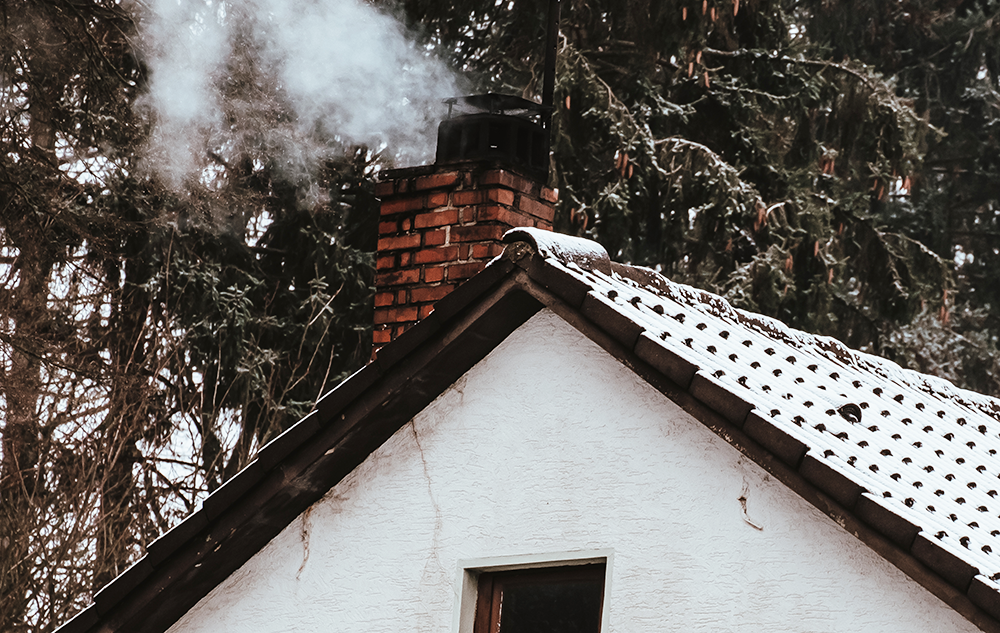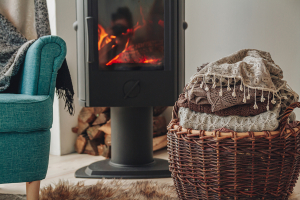
When it comes to maintaining your chimney, safety and efficiency should be your top priorities. Ensuring that your chimney is properly insulated and sealed is crucial for preventing damage, improving performance, and enhancing overall safety. Essential components for achieving this are vermiculite, rockwool and Flexwrap. In this blog, we will explore why you should consider using insulation in your chimney.
Insulation and Heat Retention
Vermiculite is a naturally occurring mineral known for its excellent insulation properties. When applied in the chimney's flue liner, it helps to keep the heat inside the chimney, rather than letting it escape into your home. This insulation not only enhances the efficiency of your heating system but also reduces the risk of structural damage to your chimney due to extreme temperature fluctuations. By retaining heat within the chimney, vermiculite prevents the formation of creosote and reduces the chances of chimney fires.
Protection from Corrosion
Chimneys are exposed to the elements, and over time, this exposure can lead to corrosion and deterioration of the inner liner. Flexwrap, a flexible, non-combustible material, is used to protect the chimney liner. It acts as a barrier against moisture, acids, and corrosive byproducts of combustion. By preventing the corrosion of your chimney liner, Flexwrap extends the lifespan of your chimney and maintains its structural integrity.
Reducing the Risk of Condensation
Condensation is a common problem in chimneys, especially in areas with fluctuating temperatures. When warm flue gases meet a cold chimney liner, moisture can condense on the walls of the chimney. Over time, this can lead to the formation of creosote, a highly flammable substance. Vermiculite's insulating properties help maintain a consistent temperature within the chimney, reducing the risk of condensation and creosote buildup. Whereas, rockwool wraps around the flexi liner to reduce the possibility of condensation.
Improved Draft and Airflow
Flexwrap and rockwool are versatile materials that can be used to seal gaps and cracks in the chimney liner, ensuring that the airflow and draft within the chimney are optimized. Proper airflow is crucial for the efficient operation of your fireplace or stove. By using Flexwrap or rockwool to seal any leaks, you can prevent backdrafts, reduce smoke intrusion, and enhance the overall performance of your chimney. This means that you will also burn your fuel more efficiently helping to save on the cost of fuel too.
Compliance with Safety Standards
Many local building codes and safety regulations require that chimneys be insulated and properly sealed to reduce fire hazards and protect your home. Using vermiculite, rockwool or Flexwrap can help you meet these safety requirements, ensuring that your chimney is compliant with industry standards and local regulations.
The use of insulation in your chimney is not just a matter of convenience; it's a matter of safety, efficiency, and longevity. These materials protect your chimney from the elements, prevent heat loss, reduce the risk of condensation and creosote buildup, and enhance overall draft and airflow. By investing in these essential chimney components, you can enjoy a safer, more efficient, and longer-lasting chimney system, ultimately providing peace of mind for you and your family. So, whether you're considering a new chimney installation or looking to upgrade your existing one, don't overlook the importance of insulation. Your chimney and your home will thank you for it.
Click here to view our range of Flue Insulation Materials including Vermiculite, Rockwool and Flexwrap.





